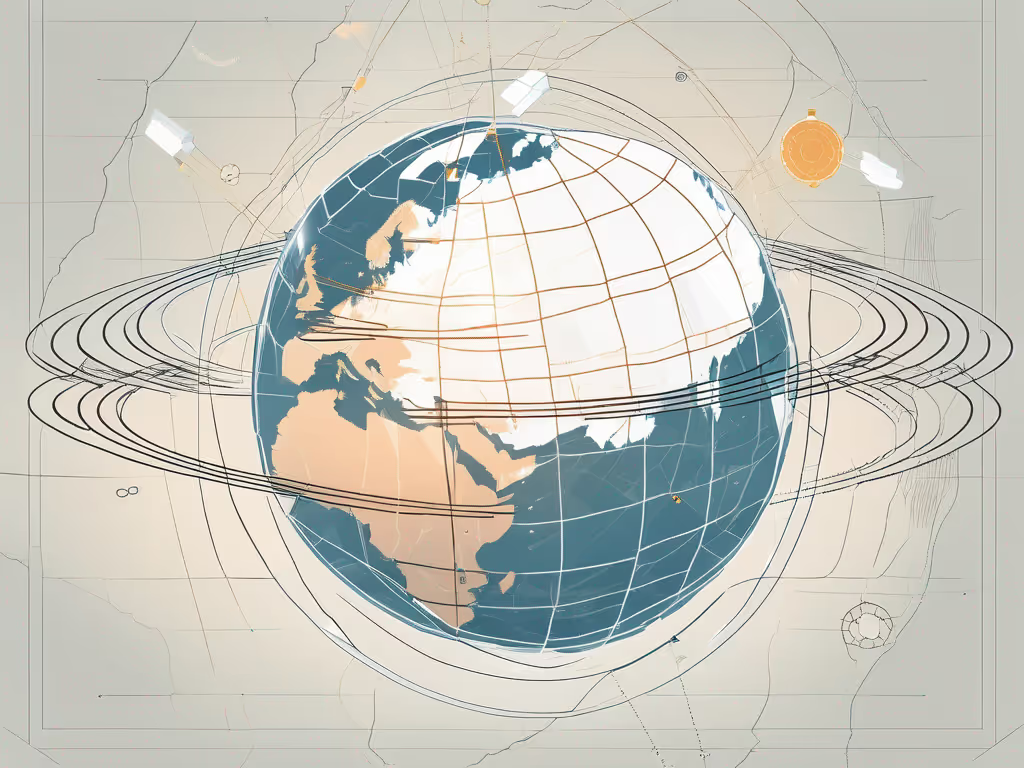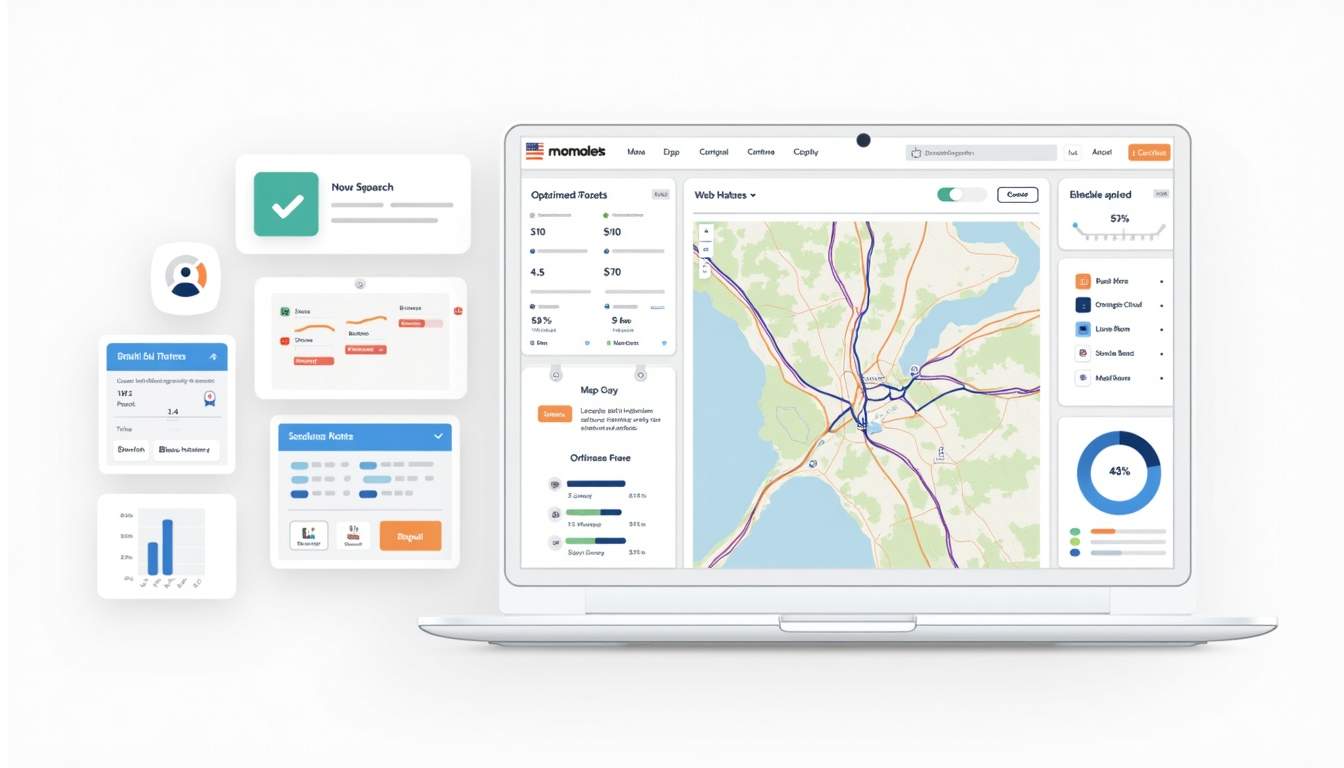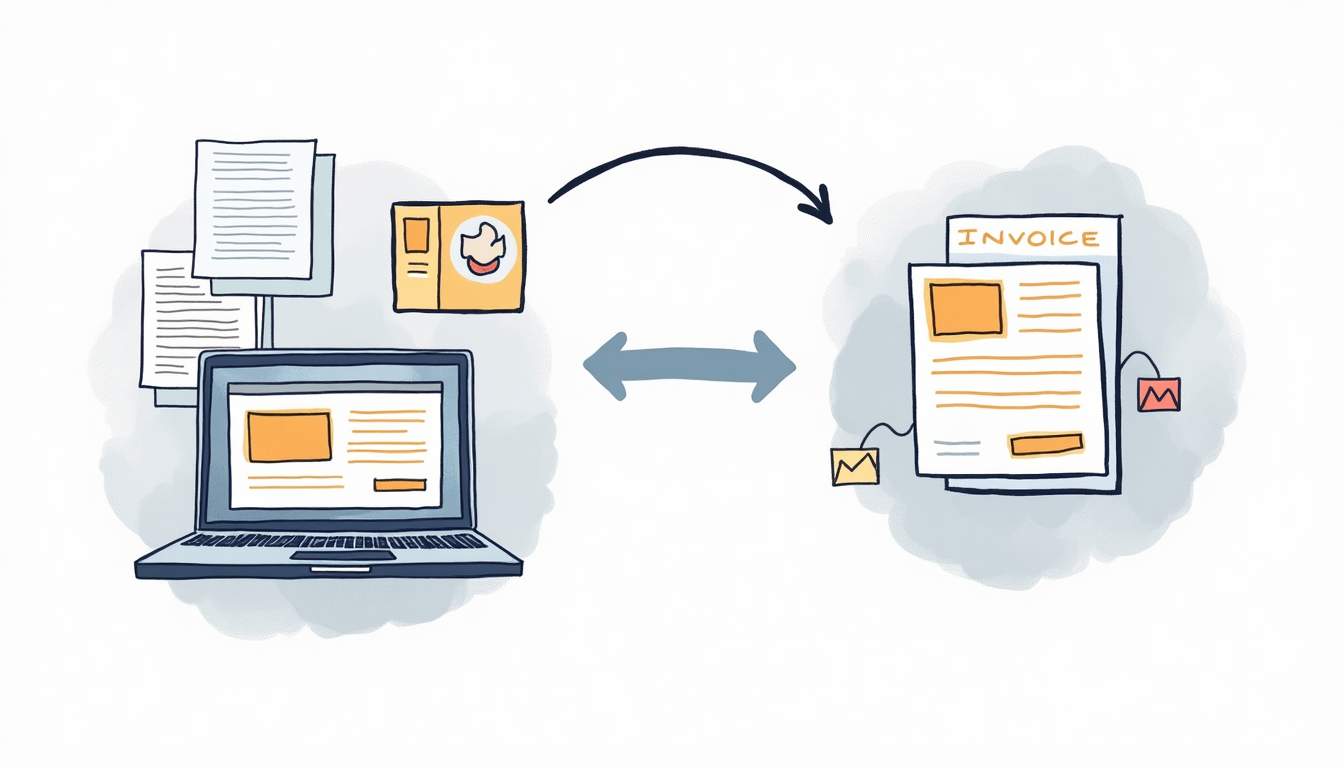In today's fast-paced world, staying connected and knowing where things are located is more important than ever. GPS tracking technology has emerged as a crucial tool for both individuals and businesses alike. This comprehensive guide will delve into the essence of GPS tracking, explore its evolution, illustrate its benefits, and examine the various types of GPS trackers available on the market.
Understanding GPS Tracking
GPS, or Global Positioning System, is a satellite-based navigation system that has transformed the way we navigate our surroundings. Understanding GPS tracking begins with grasping the underlying principles of this remarkable technology.

The Basics of GPS Technology
At its core, GPS technology operates through a constellation of satellites orbiting the Earth. These satellites continuously transmit signals that can be received by GPS devices on the ground. By calculating the time it takes for the signals to reach the device, the GPS receiver can determine its precise location in three-dimensional space: latitude, longitude, and altitude.
This location data is especially useful in various applications, from mapping and navigation to time synchronization and surveying. The accuracy of GPS can vary, ranging from a few meters to less than a centimeter, depending on the receiver and environmental conditions. In addition to navigation, GPS technology has found its way into numerous industries, including agriculture, where farmers utilize GPS-guided equipment to optimize planting and harvesting, thereby increasing efficiency and yield.
The Role of Satellites in GPS Tracking
Satellites play a pivotal role in the functionality of GPS tracking. The current GPS system consists of at least 24 operational satellites, strategically positioned to provide worldwide coverage. Each satellite is equipped with atomic clocks, ensuring that the signals transmitted are highly accurate.
When a GPS device calculates its position, it uses signals from at least four satellites. This method, known as trilateration, allows the device to pinpoint its location by determining how far away each satellite is based on the time delay of the received signals. Furthermore, the system is designed with redundancy in mind; even if a few satellites are temporarily out of service, the remaining satellites can still provide accurate positioning information, ensuring reliability in critical applications such as aviation and maritime navigation.
How GPS Receivers Work
GPS receivers are the devices that unlock the potential of GPS technology for everyday use. These can range from smartphones to dedicated handheld GPS units. The primary function of a GPS receiver is to interpret satellite signals and translate them into usable location data.
Modern GPS receivers also incorporate additional technology, such as Assisted GPS (A-GPS), which enhances accuracy by integrating data from cellular networks. This dual functionality allows for quicker location fixes, particularly in urban environments where satellite signals may be obstructed. Additionally, many GPS receivers now feature advanced mapping capabilities, real-time traffic updates, and integration with other sensors, such as accelerometers and gyroscopes, to provide a comprehensive navigation experience. As a result, users can enjoy features like turn-by-turn directions, route optimization, and even location sharing, making GPS an indispensable tool in our increasingly mobile world.
The Evolution of GPS Tracking
Tracing the evolution of GPS tracking reveals a history of innovation and adaptation. This journey reflects how the technology has grown from a military application to an essential part of everyday life.

The History of GPS Technology
The roots of GPS technology can be traced back to the 1970s when the United States Department of Defense developed it for military navigation. The system became fully operational in 1995, enabling civilian access to the technology. This monumental shift paved the way for GPS to revolutionize various sectors, including transportation, emergency services, and personal navigation.
In its early years, GPS was primarily used by government agencies and specialized industries. However, with advancements in technology and a reduction in the cost of GPS receivers, it soon became accessible to the general public. As the technology proliferated, it found applications in diverse fields such as agriculture, where farmers began utilizing GPS for precision farming, optimizing crop yields, and reducing waste. The integration of GPS into vehicles also transformed logistics and fleet management, allowing companies to track their assets in real-time and enhance operational efficiency.
Modern Advances in GPS Tracking
Today, GPS technology continues to evolve. The emergence of smartphones and connected devices has integrated GPS tracking into daily life. Applications range from navigation and fitness tracking to real-time location sharing. Social media platforms have also embraced GPS technology, enabling users to tag their locations in posts and share their whereabouts with friends and family, creating a new layer of connectivity and interaction.
Moreover, recent advancements have focused on improving accuracy and reliability. Technologies such as multi-constellation systems (including GLONASS, Galileo, and BeiDou) and real-time kinematic positioning (RTK) are pushing the boundaries of what GPS can achieve. These innovations not only enhance positioning accuracy to within centimeters but also enable applications in autonomous vehicles, where precise navigation is critical for safety and efficiency. Furthermore, the integration of GPS with other technologies, such as Internet of Things (IoT) devices, is paving the way for smart cities, where location data can optimize traffic flow, improve public transportation, and enhance urban planning initiatives.
The Benefits of GPS Tracking
With its growing prevalence, the benefits of GPS tracking are becoming increasingly evident. Whether for personal use or business strategies, GPS offers significant advantages that enhance safety, security, and efficiency.
Enhancing Navigation and Location Services
One of the most recognized benefits of GPS tracking is its ability to enhance navigation. This technology has transformed the way we travel, providing real-time directions and guidance.
As we navigate through unfamiliar territories, GPS helps eliminate uncertainty by delivering accurate location data and alternative routes during traffic disruptions. This functionality ensures that individuals reach their destinations quickly and safely. Moreover, GPS systems are now integrated with various applications that provide additional information, such as nearby points of interest, fuel stations, and even restaurant reviews, enriching the travel experience and making it more enjoyable.
Improving Safety and Security
GPS tracking plays a critical role in enhancing safety for both individuals and organizations. For parents, knowing the whereabouts of their children provides peace of mind. For businesses, GPS tracking of vehicles can ensure the safety of drivers and cargo through real-time monitoring.
Additionally, many emergency services utilize GPS technology to locate individuals in distress, enhancing response times during critical situations. This amalgamation of tracking technology and safety measures creates a more secure environment. Furthermore, with the rise of personal safety apps that leverage GPS, individuals can share their location with trusted contacts, allowing for added layers of security during solo travels or nighttime outings. These advancements in GPS technology not only protect lives but also foster a culture of accountability and awareness.
Boosting Efficiency in Various Industries
Various industries have leveraged GPS tracking to boost operational efficiency. For example, shipping and logistics companies depend on GPS to optimize delivery routes and monitor fleet movements.
In agriculture, GPS technology aids in precision farming, allowing farmers to manage their resources effectively and reduce waste. As diverse sectors tap into the power of GPS, the benefits of streamlined operations become apparent, resulting in increased productivity and profitability. Additionally, in the construction industry, GPS is utilized for site surveying and machinery tracking, ensuring that projects stay on schedule and within budget. This level of precision and oversight not only minimizes operational costs but also enhances project management, ultimately leading to better outcomes for stakeholders involved. The versatility of GPS tracking continues to inspire innovation across various fields, paving the way for smarter and more efficient practices.
Different Types of GPS Trackers
As we explore the landscape of GPS technology, it is essential to understand the different types of GPS trackers available, each serving unique purposes to cater to individual and organizational needs.

Personal GPS Trackers
Personal GPS trackers are designed for individual use and are often compact and portable. These devices enable users to track their location, whether during outdoor activities, commutes, or travel adventures.
Many personal GPS trackers also offer features such as geofencing, which notifies users when they enter or exit specific areas. This technology can be particularly beneficial for parents who wish to monitor their children's activities or for individuals engaging in high-risk outdoor activities.
Vehicle GPS Trackers
Vehicle GPS trackers are increasingly popular among consumers and businesses alike. These devices provide real-time tracking of vehicles, offering insights into location, speed, and driving behavior.
For commercial fleets, vehicle GPS trackers can enhance efficiency by monitoring routes, reducing fuel consumption, and improving driver safety. For personal use, these devices can aid in recovering stolen vehicles or ensuring the safety of loved ones on the road.
Asset GPS Trackers
Asset GPS trackers are specifically designed to ensure the security of valuable items, such as equipment, trailers, or shipping containers. These devices provide real-time location insights, helping businesses track their assets and prevent loss or theft.
Such trackers often come with extended battery life and rugged designs to withstand various conditions. Ultimately, asset GPS tracking enables companies to protect their investments and optimize their supply chains efficiently.
In conclusion, the world of GPS tracking is continually expanding, and its applications are becoming increasingly integral to our lives. Understanding how GPS works, its evolution, benefits, and various types can empower you to leverage this technology to make informed decisions, enhance safety, and improve overall efficiency. Embracing GPS tracking isn't just about knowing where you are; it's about understanding the world around you and making the most of it.
Ready to take your pool service business to the next level with the precision and efficiency of GPS tracking? ProValet is here to guide you into the future. Our platform respects the unique nature of your business while enhancing your operational efficiency, revenue, and customer communication. With features like real-time GPS tracking for route optimization and the innovative Homeowner app for seamless client engagement, ProValet is more than a service—it's a transformation. Experience the difference with a 15 minute Discussion & Demo and see how ProValet can adapt to your business, ensuring every interaction is a step towards success.








